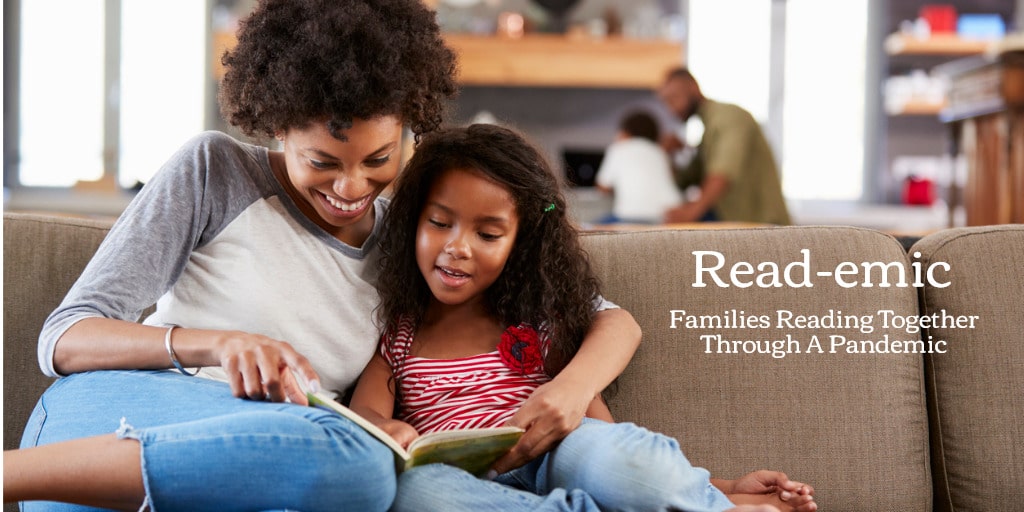The Read-emic
By Wendy White, Read Better Be Better Advocate
At Read Better Be Better (RBBB), we prioritize the academic power of reading, working to ensure that our students make the transition from “learning to read” to “reading to learn” and are reading at grade-level by the time they finish 3rd grade. Statistically, students who read at grade-level by the end of 3rd grade have an 89% chance of graduating from high school, irrespective of socio-economic status, which can be a predictor of future achievement and success.
Founded in Phoenix in 2014, RBBB currently facilitates afterschool programming in 77 schools in 11 districts in the state of Arizona, as well as in partnership with several community-based organizations. The core RBBB afterschool program partners a 3rd grade “Reader” with a middle school “Leader”, supporting the growth of a mutually-beneficial mentorship over the course of 10 weeks — Readers improve their literacy skills while Leaders improve their leadership skills.
When the COVID-19 pandemic shuttered schools throughout Arizona in March 2020, including our afterschool program, the RBBB team quickly worked to develop materials that could be used in our students’ homes to continue learning: Read Better Be Better At Home. This new off-site version pairs 2nd through 4th grade Readers with a Leader in the home: older siblings, caregivers, or other older household members. Similar to our core programming, RBBB At Home is available at no cost to families in the state of Arizona.
From the summer of 2020 onward, through weekly check-ins between our staff and caregivers participating in RBBB At Home, we learned about the many difficulties that our families were experiencing — from loved ones contracting COVID; to parents working longer hours, or losing their jobs and grappling with financial issues; to our students struggling with the isolation and disruption that accompanied the pandemic.
But we also began to hear about the power of reading in a whole other way beyond its educational necessity. Many of the caregivers reported that something unexpected was happening with them and their children during the twice weekly, 30-minute reading sessions. In the midst of the chaos, we discovered that reading together was creating a new space in which families could sit with each other, learn, share, discuss, laugh, and enjoy one another’s company.
“[My children] get along better and there is more communication between them both,” said one caregiver whose sons attend school in the Avondale School District. “They are learning from each other.”
Developing closer sibling and familial bonds was mentioned again and again by caregivers. “The program has been great, especially for the relationship between David and Destiny,” says another caregiver of her two children who attend school in the Peoria Unified School District. David knows he has a “reading date” with his little sister every Tuesday and Thursday and he is dedicated to that schedule.
For some students, the books they read helped them to understand larger concepts of life that have surfaced during a pandemic rife with loss and grief. Fourth-grade Deer Valley Unified School District student Cecilia read “Dog Man: Mothering Heights” and learned, “That love lasts forever. Love prevails.”
For other students, books show them ways to help others during this unprecedented time. Adam, who also attends school in the Avondale School District, read the book “The Big Book of Hugs: A Barkley the Bear Story,” which illustrated to him the importance of “giving hugs when someone is sad, or happy.”
Adam has especially enjoyed the time he’s spent reading with his dad. And his dad, in turn, said, “Reading with Adam made me start to enjoy reading. I never was a reader before and now I am.”
Reading has become part of many families’ daily routines, which has provided caregivers with windows into the growth their children are making in their comprehension, vocabulary development, and reading fluency. Jan experienced firsthand how her son’s confidence in reading strengthened week-by-week. First, she read him a page and then he read her a page. As his focus and comprehension improved, he began reading books on his own. And then he started reading books to his mom and baby brother. “It was no longer a fight to get him to read,” she said of her son, who is a student in the Peoria Unified School District. “Reading has made a huge difference in his life.”
For Maria, being a Leader for her younger sister, Catalina, has improved her own reading. “A long time ago, I didn’t understand stories but being a Leader has helped my reading comprehension,” said Maria, who attends school in the Alhambra Elementary School District. So much so that Maria has been moved up to a more advanced reading group at school.
Maria and Catalina completed three RBBB sessions together during the pandemic. Their caregiver, Karley, has noticed that they now interact more often in ways they didn’t before. “They play more together, they work together, and they ask each other for help,” she said.
And, finally, the time spent reading together has provided new opportunities for our families to show appreciation for one another. “I had a fun time reading and sharing this book with you,” Angelo’s mother told the Alhambra Elementary School District student. “I like the way you read the book. When you say, ‘milk’ and ‘honey.’”
While we knew reading has the power to help learners improve and engage, we never could have predicted the difference it would make for familial and social connection during a time of complete isolation. Whether it’s part of a structured afterschool program, or just a family setting aside some time after dinner, reading together allows us to connect with one another, the world around us, and ourselves.
To learn more about Read Better Be Better visit our website at www.readbetterbebetter.org or follow us on social media, @readbetterAZ on Instagram and Twitter and @ReadBetterBeBetter on Facebook and YouTube.
Also See:
Kick Off 2021 Reading with Your Child





